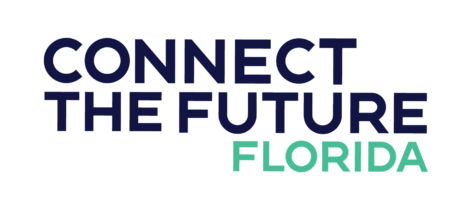Universal Broadband Access Is Within Florida’s Grasp
The Florida legislative session was busy for lawmakers, who oversaw the passage of 3,095 bills and a $101.5 billion budget. One of the most promising developments included a new law designed to expand broadband access in the Sunshine State.
Signed by Gov. DeSantis on May 7, the Broadband Deployment Act, or HB 1239, takes important strides toward addressing barriers that hinder the expansion of high-speed internet service.
In many rural communities, wooden utility poles are the backbone of the telecommunications infrastructure. Reaching a single home may require attachments to 10 or more poles, so any unnecessary delays or expenses associated with that process can have a profound impact on local efforts to expand broadband service.
HB 1239 establishes a more equitable division of costs for replacing utility pole infrastructure. It also provides a temporary reduction in the annual rate paid by broadband providers to attach their networks to poles owned by municipal electric companies in unserved areas.
In addition, the bill establishes a funding mechanism for current and future broadband projects and directs the Florida Office of Broadband to formulate a strategic plan to increase broadband service in unserved areas.
These changes represent a significant step forward, and I applaud Gov. DeSantis, state Rep. Josie Tomkow and state Sen. Danny Burgess for their leadership on efforts to close the digital divide. I urge lawmakers to continue this momentum by addressing the remaining barriers to connectivity in unserved communities, where nearly 804,000 Floridians still lack access to a high-speed internet connection. Florida has a great opportunity to be the first state to deliver universal broadband access for all its residents.
I encourage our elected leaders to look at adopting additional reforms that apply to all Florida communities, regardless of whether the local poles are owned by investor-owned utilities, municipal electric companies or rural electrical cooperatives.
In many instances, a lack of clear rules and high-cost burdens have drained resources and left small communities seeking broadband access vulnerable to unpredictable delays. Not only do these barriers restrict high-speed internet access, but they also limit the ability of Florida’s manufacturers and other potential employers to create new jobs in unserved areas. That’s why lawmakers should keep up the fight by ensuring that new investments in rural broadband, both by taxpayers and private companies, can focus resources on delivering service to more families as quickly as possible.
Florida is a leader when it comes to broadband access, with service available to 97% of residents, according to federal estimates. But as we get closer to covering those last areas still without adequate service, the remaining barriers tend to be among the toughest to overcome. Universal broadband access in Florida is within our grasp but there is still work to be done to ensure taxpayers get the most from their investment, we keep our state competitive and attract the continued investment necessary to fully close the digital divide.
I hope soon Florida families that still cannot get online will finally be able to take advantage of 21st century tools that unlock new jobs, better educational outcomes, increased access to healthcare, more productive agriculture and all the modern conveniences others take for granted.
Brewster Bevis is Vice President of Associated Industries of Florida, based in Tallahassee.
